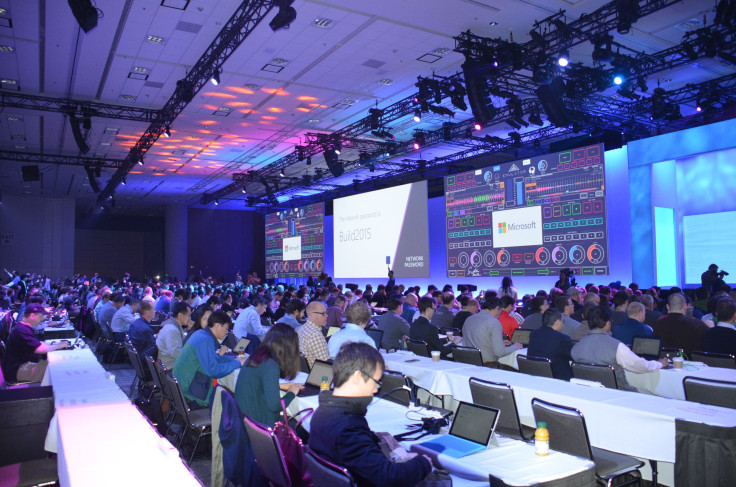Windows 10 Reminds Microsoft Co-Founder Bill Gates Of Windows 1.0

SAN FRANCISCO -- Windows 10, the operating system that Microsoft will launch later this year with the hope of recapturing its status as a tech innovator, reminds Bill Gates of an OS that’s about three decades old – in a good way. Microsoft’s co-founder thinks the fact that Win10 will let users overlay apps on top of each other and slide them around the screen at will is "a great idea.”
With Windows 8, users could not tile, layer or resize touch-based apps like they could on the desktop. That’s part of the reason many consumers found the software frustratingly difficult to use. Sales of Windows 8 PCs suffered as a result.
In a meeting with Gates during the early planning phases of Windows 10, Microsoft Corporate Vice President David Treadwell told the tech legend about the design team’s plan to create touch-based apps that wouldn’t necessarily fill the whole screen and could be moved around and resized. Gates, according to Treadwell, who spoke Thursday at Microsoft’s Build 2015 conference here, said that feature reminded him of, wait for it, Windows 1.0. “He thought it was a great idea,” said Treadwell, during a keynote.
The story was meant to be somewhat whimsical, but it underscores how Microsoft has abandoned much of the design philosophy behind Windows 8 to create a more user-friendly successor that can be embraced by businesses and consumers on PCs, tablets and smartphones. (Microsoft skipped Windows 9 altogether to distance itself from Windows 8.)
The stakes are high. Redmond continues to own the desktop OS market, but much of computing is shifting to mobile devices, a market dominated by Apple and Google.
Microsoft is building a number of new features into Windows 10 in hopes of creating a platform that has broader appeal than its predecessor. “We must put the user at the center of the experience,” Treadwell said. Among other things, Windows 10 will provide built-in support for 3D printing through Autodesk’s Sparc technology, voice assistance through Cortana and a Bing search tool that is tightly integrated into apps.
And yes, users will be able to run multiple touch apps on a single screen, much as they always could with traditional Windows desktop applications.
Microsoft also is looking to make life easier for developers, on whom it will depend to create apps that will drive demand for Windows 10 devices. Treadwell promised developers in the audience that Windows 10 tools will offer a simple, elegant way to write apps that can run on multiple devices, including PCs, phones, tablets, the Xbox and even Microsoft’s new HoloLens holographic technology.
By writing to the Universal Windows Platform, developers can “reach the entire family of devices,” said Treadwell.
© Copyright IBTimes 2024. All rights reserved.






















